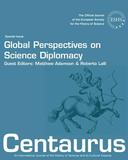Professor Erica Charters
My research examines the history of war, disease, and empires. In the context of COVID-19, I coordinated a multidisciplinary project on How Epidemics End. I am also PI of the interdisciplinary Oxfordshire Health Humanities project. More specifically, my research focuses on the history of measurement, particularly for health, disease, and bodies, including the early history of statistics. Since disease was the biggest threat to manpower in the early modern world, I look at how disease environments – throughout the world – shaped military, commercial, and agricultural power, as well as how overseas experiences shaped European theories of medicine, biology, and race alongside political methodologies such as statistics and censuses. In 2023 I was awarded a Leverhulme Fellowship for my project ‘Excess Death: Counting the Costs of Eighteenth-century War, Disease, and Empire.’
My monograph Disease, War, and the Imperial State traces how responses to disease shaped military strategy, medical theory, and the nature of British imperial authority (awarded the AAHM 2016 George Rosen Prize and the SAHR 2014 Best First Book). I have a long-standing interest in the relationship between war and civil society; I have published on the history of prisoners of war and co-edited a volume ‘Civilians and War in Europe, 1618-1815’, as well as co-edited a volume on the global history of violence in the early modern world that integrates military history into broader cultural histories of violence. I am also part of a transnational and interdisciplinary project ‘Body Counts/les pertes’ that examines the history of methodologies for quantifying and identifying casualties and losses in war, including changing notions of ‘acceptable’ losses in war.
More broadly, I am interested in highlighting the importance of historical and humanities scholarship to health and medicine, as well as integrating military and imperial history into mainstream historical understanding. I was Director of Oxford’s Centre for Global History from 2016 to 2022, and Director of the newly-established Oxford Centre for the History of Science, Medicine, and Technology from 2018 to 2022. From 2022 to 2025 I was Academic Lead of Oxford’s Medical Humanities research hub, during which time it won the Vice-Chancellor’s Award for Research Culture. As well as coordinating the Oxford and Empire project, I am on the Executive Committee of the Navy Records Society and the Society for the History of War. I am also on the editorial boards of the British Journal of Military History, War Studies Journal, and Centaurus.
You can read about some of my research on my blog https://warhistory.blog/ and follow me @EricaCharters
Research Interests
- Disease and war
- Cultural history of war
- Global history and disease
- Imperial history
See page on Wolfson College website
Humanities Teaching Award for innovative Oxford and Empire Project
Featured Publication
In the Media
How the pandemic’s narratives are still unfolding, five years on
The Metrics of War: Excess Mortality and the Politics of Counting
Current DPhil Students
Teaching
I would like to hear from potential DPhil students regarding history of war; history of disease and medicine; early modern empires; French Empire 18th century; British Empire 18th century
I would like to hear from any potential Masters students looking at history of war; history of medicine; environmental history; British history; French history; imperial and global history.
I currently teach:
Masters:
- Methods and Themes in the History of Science and Medicine
- Global and Imperial History: Methods and Concepts
- Disease, Medicine and Empire in the Americas
- Manpower and State Power
|
Prelims |
FHS |
| Medicine, Empire, and Improvement | |
|
War and Society in Britain and Europe The Authority of Nature |








